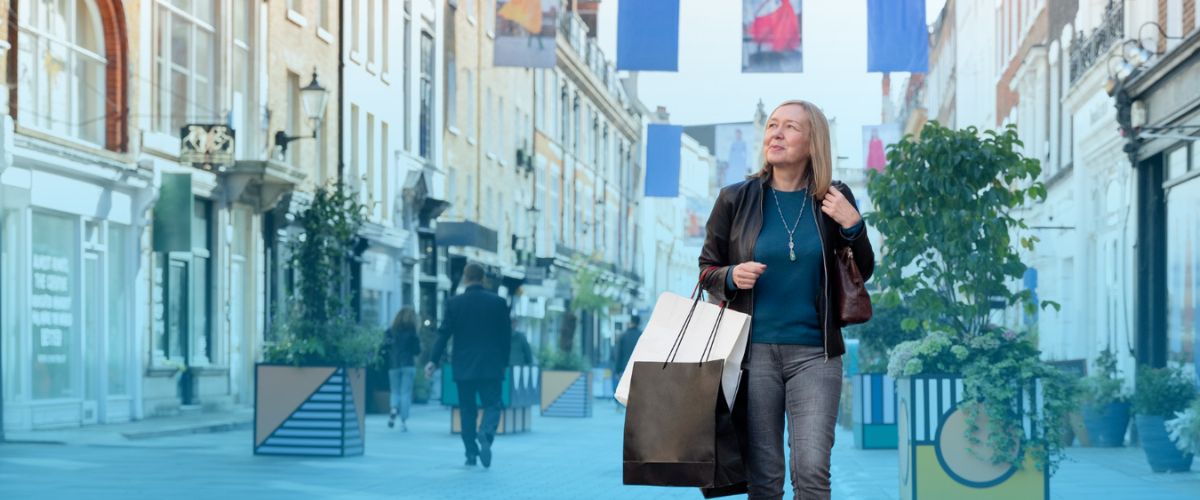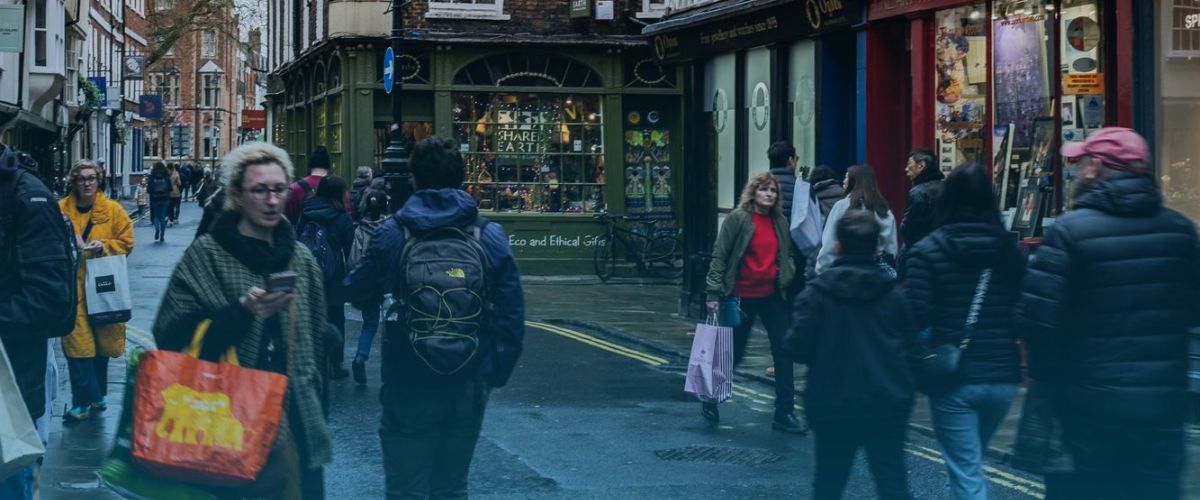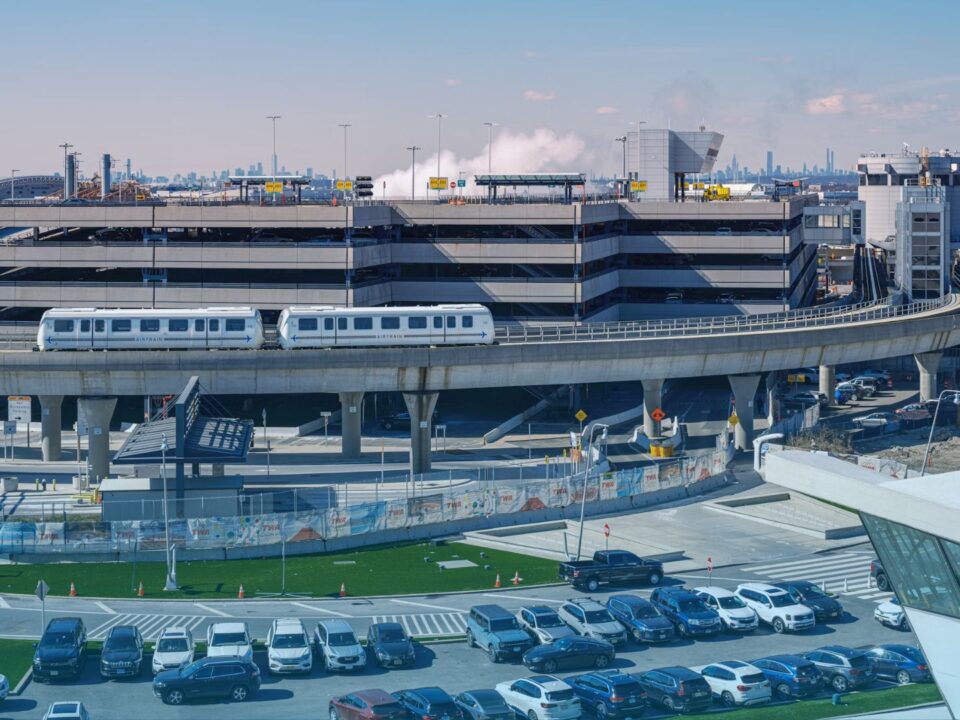Parking and the High Street comeback

The 5 minute stop that costs you all day
20/08/2025
What ANPR is teaching us about changing habits
15/09/2025Why the way we park could decide the future of our town centres
The British high street has been declared dead more times than most of us can count. Out-of-town retail parks, online shopping, the pandemic - all were supposed to be the final nail. And yet, if you walk through many towns on a Saturday morning, you see a different picture. Bakers with queues out the door, nail bars and coffee shops packed, small independents trying their hardest to hold their ground.
It’s not the high street of twenty years ago. But it isn’t gone either. The question is: what role does the car park play in whether it thrives or fades?
That question is worth asking.

The car park as the front door
Think about how a trip to the high street begins. Not with the first shop, but with the first space. For most visitors outside walking distance, the car park is the front door to town. If that first experience feels confusing, stressful, or hostile, it sets the tone for the whole visit.
You only need to picture two scenarios.
In the first, you circle endlessly, watching the clock, missing gaps because the signage is poor. You finally wedge the car into a tight bay, annoyed before you’ve even started. You rush your shopping and leave early.
In the second, the layout is clear, bays are available, payment is simple, and rules are transparent. You step out calmer, more open to browse, more likely to linger. The first five minutes have set you up for an hour or two of positive time on the high street.
Small differences at the entrance ripple through the rest of the town.
What shoppers really notice
It’s easy to think the public doesn’t care how car parks are managed, that they just want the cheapest tariff. But watch closely and you see the nuances.
Parents notice whether parent-and-child bays are respected, or whether they’re blocked by people “just nipping in.” Disabled drivers notice whether their space is free, or taken by someone who couldn’t be bothered to walk an extra thirty yards. Shoppers notice whether the ticket machine swallows coins, or whether the app takes a payment in seconds.
People notice fairness.
When a car park feels fair - when rules are visible, consistently applied, and designed with different needs in mind - people respond with trust. They stop seeing it as a battle and start seeing it as part of the town’s fabric. And when they trust the car park, they are more likely to trust the shops around it.
That trust is fragile. Lose it, and you lose more than parking revenue. You lose repeat visits. You lose goodwill. And in a fragile high street economy, goodwill matters almost as much as pounds spent.

The bigger picture: footfall, dwell time, and loyalty
Car park management isn’t glamorous. It rarely makes headlines, and when it does it’s often for the wrong reasons. But beneath the surface it influences three things that decide whether a high street survives: footfall, dwell time, and loyalty.
Footfall is obvious. If people can’t find a space or are put off by unclear rules, they stay away. The high street loses before the visit has begun.
Dwell time is more subtle. A shopper who feels secure in their parking - clear on how long they’ve got, confident they won’t return to a parking charge notice - stays longer. They buy that extra coffee, pop into a second shop, maybe try the new restaurant. Minutes in the car park translate into pounds on the high street.
Loyalty is the long game. If a car park feels consistently reliable, people make it part of their weekly or monthly routine. They don’t think twice. And when local people fold that habit into their lives, a high street gains resilience that no one-off campaign can deliver.
Car parks don’t decide everything. But they tilt the balance more than most councils, landlords, or shopkeepers give credit for.
Why this matters now
There’s a temptation to treat parking as a side issue - a matter of tariffs and tickets, not strategy. But right now, as town centres look to reinvent themselves, the margins matter.
We know the high street isn’t going back to what it was. We’re not rewinding to a time when every shopfront was filled, and every weekend meant heavy bags. But people still want to gather, still want to shop locally, still want to feel the texture of town life. The high street that survives will be the one that leans into that - with good food, good services, social connection.
And that requires access.
If access is choked, disorganised, or unfair, the pull of online wins again. If access is smooth, respectful, and trusted, the town centre stands a chance. It really is that simple.

A quiet partnership
The truth is, car park management works best when it doesn’t shout about itself. A high street flourishes not because people talk about parking, but because they don’t. The absence of frustration is what allows people to focus on what they came for.
In that sense, car park management is a quiet partner in the high street revival. It’s not the headline act. It’s the stagehand making sure the lights work, the backdrop holds, and the performance can go ahead without a hitch.
And if we want our high streets to have a second act, that partnership needs to be taken seriously.
Because a car park is never just a car park.
It’s the first impression. The last memory. And sometimes, the deciding factor in whether a shopper comes back at all.




